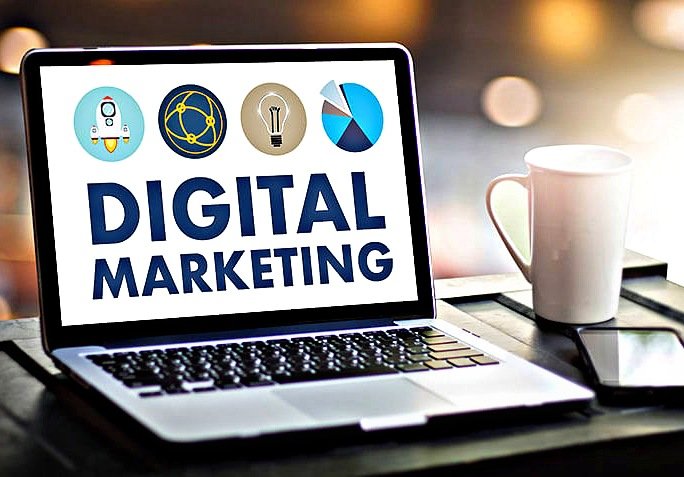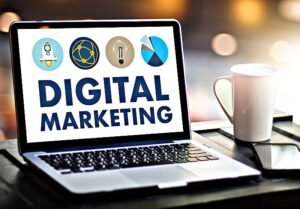Digital marketing has transformed the way businesses engage with customers, offering unprecedented opportunities for reaching a global audience. From the early days of email marketing to the sophisticated use of artificial intelligence (AI) and data analytics today, digital marketing has evolved into a multi-faceted discipline that is critical for success in the modern business landscape. This article explores the key components of digital marketing, the strategies that drive success, and the future trends that are shaping the industry.
**The Foundations of Digital Marketing**
Digital marketing encompasses all marketing efforts that use an electronic device or the internet. Businesses leverage digital channels such as search engines, social media, email, and websites to connect with current and prospective customers. The goal of digital marketing is to attract, engage, and convert leads into loyal customers.
The main components of digital marketing include:
1. **Search Engine Optimization (SEO):**
SEO is the process of optimizing your website to rank higher in search engine results pages (SERPs). The higher your site ranks, the more visible it becomes to potential customers. SEO involves both on-page factors, such as keyword optimization and content quality, and off-page factors, such as backlinks and social signals.
2. **Content Marketing:**
Content marketing focuses on creating and distributing valuable, relevant, and consistent content to attract and retain a clearly defined audience. The ultimate goal is to drive profitable customer action. Content marketing includes blog posts, articles, infographics, videos, and more.
3. **Social Media Marketing:**
Social media platforms like Facebook, Instagram, Twitter, and LinkedIn are powerful tools for engaging with your audience, building brand awareness, and driving traffic to your website. Social media marketing involves creating and sharing content tailored to each platform to encourage user interaction.
4. **Pay-Per-Click (PPC) Advertising:**
PPC is a model of internet marketing where advertisers pay a fee each time their ad is clicked. It’s a way to buy visits to your site rather than earning them organically. Google Ads is the most popular PPC system, allowing businesses to bid on keywords to display their ads in Google’s search results.
5. **Email Marketing:**
Email marketing involves sending targeted messages to a group of subscribers via email. It is a highly effective way to nurture leads, build relationships with customers, and promote products or services. Successful email campaigns are personalized, segmented, and timely.
6. **Affiliate Marketing:**
Affiliate marketing is a performance-based marketing strategy where a business rewards affiliates for each visitor or customer brought by the affiliate’s own marketing efforts. It’s a cost-effective way to expand your reach and boost sales.
7. **Influencer Marketing:**
Influencer marketing leverages individuals with a large following on social media or other online platforms to promote products or services. It’s a form of word-of-mouth marketing that can significantly enhance brand credibility and reach.
**The Importance of Data and Analytics**
Data and analytics play a critical role in digital marketing by providing insights into customer behavior, preferences, and trends. Marketers use analytics tools to measure the effectiveness of their campaigns, optimize their strategies, and make data-driven decisions. Key metrics include website traffic, conversion rates, click-through rates (CTR), and return on investment (ROI).
**Emerging Trends in Digital Marketing**
1. **Artificial Intelligence (AI) and Machine Learning:**
AI and machine learning are transforming digital marketing by enabling more personalized and efficient customer interactions. AI-powered tools can analyze vast amounts of data to predict customer behavior, automate tasks, and create personalized content.
2. **Voice Search Optimization:**
With the increasing popularity of voice-activated devices like Amazon Alexa and Google Assistant, optimizing for voice search is becoming essential. Voice search optimization involves targeting long-tail keywords and providing concise, direct answers to common queries.
3. **Video Marketing:**
Video content is more engaging and shareable than other forms of content, making it a key component of digital marketing strategies. Platforms like YouTube, TikTok, and Instagram Reels have made video marketing more accessible and effective.
4. **Omni-Channel Marketing:**
Omni-channel marketing involves creating a seamless customer experience across multiple channels, both online and offline. It’s about delivering consistent messaging and interactions, regardless of where the customer engages with your brand.
5. **Privacy and Data Protection:**
With growing concerns about data privacy, digital marketers must prioritize data protection and comply with regulations like the General Data Protection Regulation (GDPR). Transparency and trust are becoming crucial in building customer relationships.
**Conclusion**
Digital marketing is an ever-evolving field that requires businesses to stay ahead of trends and continuously adapt their strategies. By leveraging the right tools and techniques, businesses can reach a broader audience, engage customers more effectively, and drive sustainable growth. As technology advances and consumer behaviors shift, the future of digital marketing will likely see even more innovation, making it an exciting and essential area for any business looking to thrive in the digital age.












